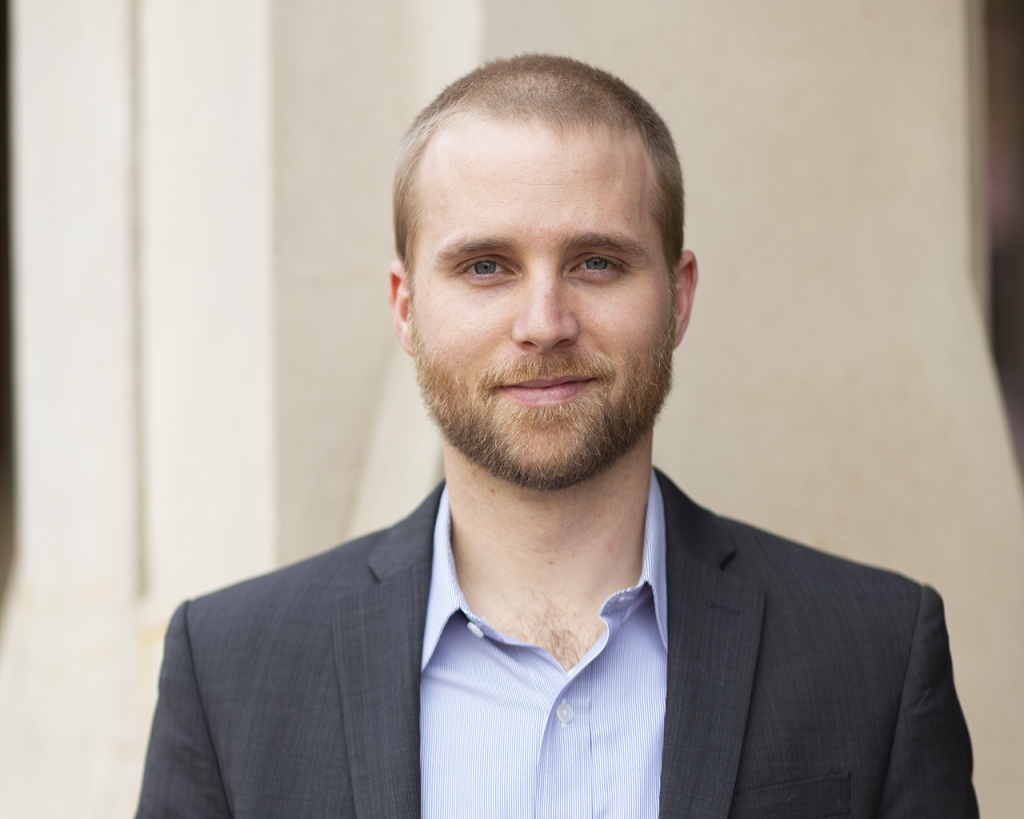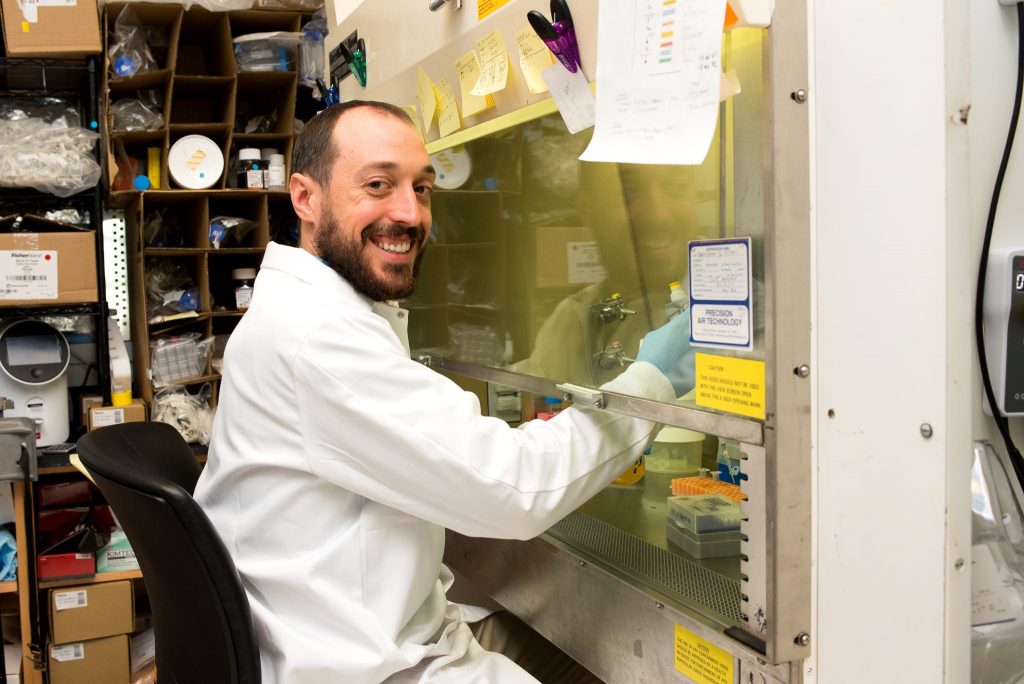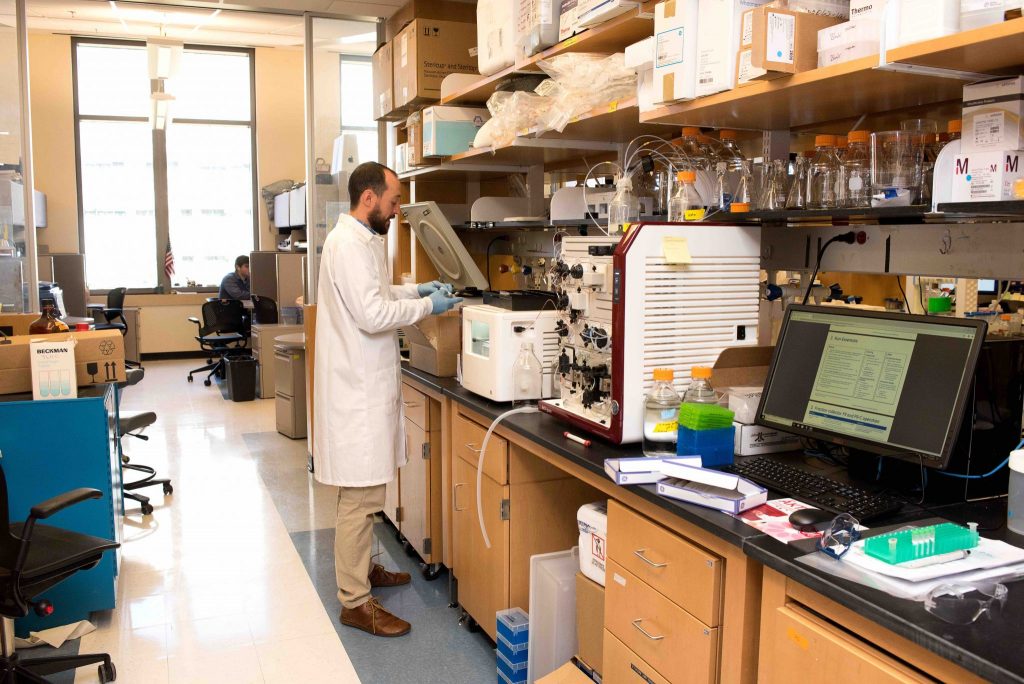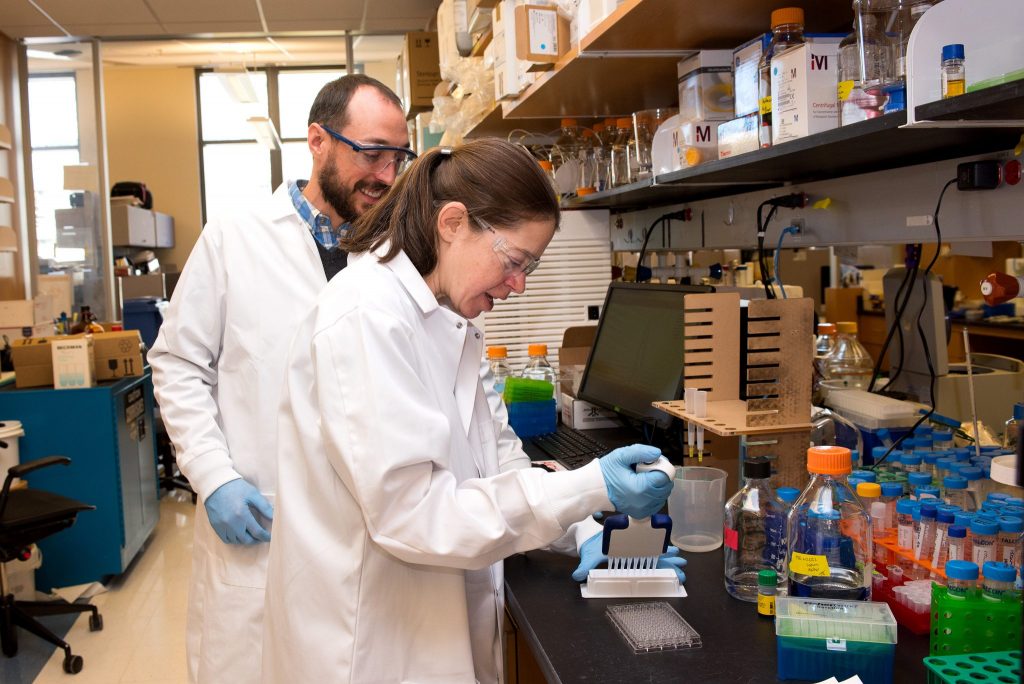Ryan Hallett
Creating a new class of protein based therapies
Ryan Hallett is co-founder and CEO of Dualogics, a research and development company using the latest advancements in protein engineering to create a new class of protein based therapies. After three years of evolution, Dualogics is finding its home focused on using their OrthoMab platform to generate therapies that serve unmet needs in the field of autoimmunity and immuno-modulation. Gain insights and learn from this UNC alumni's innovation journey as Dualogics has transitioned from academia to industry.
Q & A
Tell us a little bit about yourself and Dualogics – what problem are you trying to solve?
Dualogics is an antibody engineering company that spun out of Brian Kuhlman’s lab here at UNC-Chapel Hill. Our roots are in computational protein design, engineering new functionality into existing proteins found in nature and, when that doesn’t suffice, engineering new proteins that nature hasn’t thought of yet. We have applied a mixture of computational design and experimental screening to generate a platform for making a class of antibody drug that can bind two different targets simultaneously. As I finished my PhD at UNC, it became apparent that this technology had commercial potential, and we launched Dualogics. I’ve been involved in research ranging from basic science at the bench to clinical research in hospitals and always had a knack for business, sales and organizational growth. After 3 years of evolution, Dualogics is finding its home focused on using our OrthoMab platform to generate therapies that serve unmet needs in the field of autoimmunity and immuno-modulation.
How are you taking an entrepreneurial approach in your work – and how does that approach amplify the problem-solving capacity of your work?
The key advantage of our technology is that we can use existing antibody sequences to develop new bispecific products. As we began building our own therapeutic pipeline, we identified companies already established in antibody development and learned how to incorporate our technology into their processes. Being flexible and creative in how to structure partnerships has enabled us to quickly validate our technology beyond what we could do alone with our early-stage programs. Having worked with partners ranging from big pharma to small startups, we are learning where our technology really shines and where we can provide distinct advantages compared to the rest of the field. With this in mind, we have focused on building infrastructure that leverages the strengths of our team and our technology. Looking forward, we are using this experience to build new therapeutic programs in indications that we know we can bring a significant advantage to.
What resources at UNC helped you on your innovation journey – and why?
The UNC ecosystem has been very supportive as we have transitioned from academia to industry. The top three factors that have enabled us to get off the ground were 1) grants and awards that allowed us to perform feasibility and proof-of-concept studies for future products, 2) a streamlined licensing process that incentivizes entrepreneurs to take a risk and start their own company, and 3) space on UNC’s campus to build a lab while the company establishes itself. Altogether, this environment provided just enough stability to jump into the market and grow into who we are today.
Can you talk about the importance of having a faculty mentor as part of your entrepreneurial journey?
Having a faculty mentor has been instrumental in helping to shape our company’s internal R&D focus and giving us perspective from a career much longer than my own. On the lab side of things, starting a biotech company is similar to starting and managing an academic lab. Brian has been helpful in giving insight about how to structure projects and balance the pursuit of both ambitious and feasible endpoints. Furthermore, engaging in any life science research comes with the highs of exciting results and lows of failed experiments. With limited resources and time, it is easy to get tunnel vision. Brian and our other scientific advisors have weathered all sorts of highs and lows and can provide feedback through the lens of a long career in research.
What’s been your biggest challenge in getting your idea off the ground?
Two main challenges come quickly to mind. First, establishing a track record in the industry was an immediate hurdle we faced when launching our platform externally. Good reputations are forged over time by consistent progress, and time is in short supply in a startup. Slowly but surely, doing good science and graciously responding to feedback has built our reputation and brought in new partners. Second is a challenge that I’ve heard never goes away: fundraising. Drug development is expensive and fraught with failure, and investors are surprisingly risk-averse. It has been challenging and informative to see our therapeutic programs through the eyes of seasoned experts who have run into problems at every stage of development. In response, we are prioritizing experiments that de-risk our programs and bring them closer to the clinic.
What advice would you give to other grad students who want to hone their own entrepreneurial skills and put them into action?
The goals and structure of academia are very different from those of industry. I recommend getting as much experience in and working with companies before graduating as possible. This can come in the form of internships or collaborations; both give a sense of how companies operate structurally and how research is conducted and prioritized. Other skills that are useful in a startup are project management, teaching, and networking. As a graduate student, this translates to initiating and leading inter-lab collaborations, mentoring younger students, and getting active in local networking events.

 | UNC-CH
| UNC-CH



